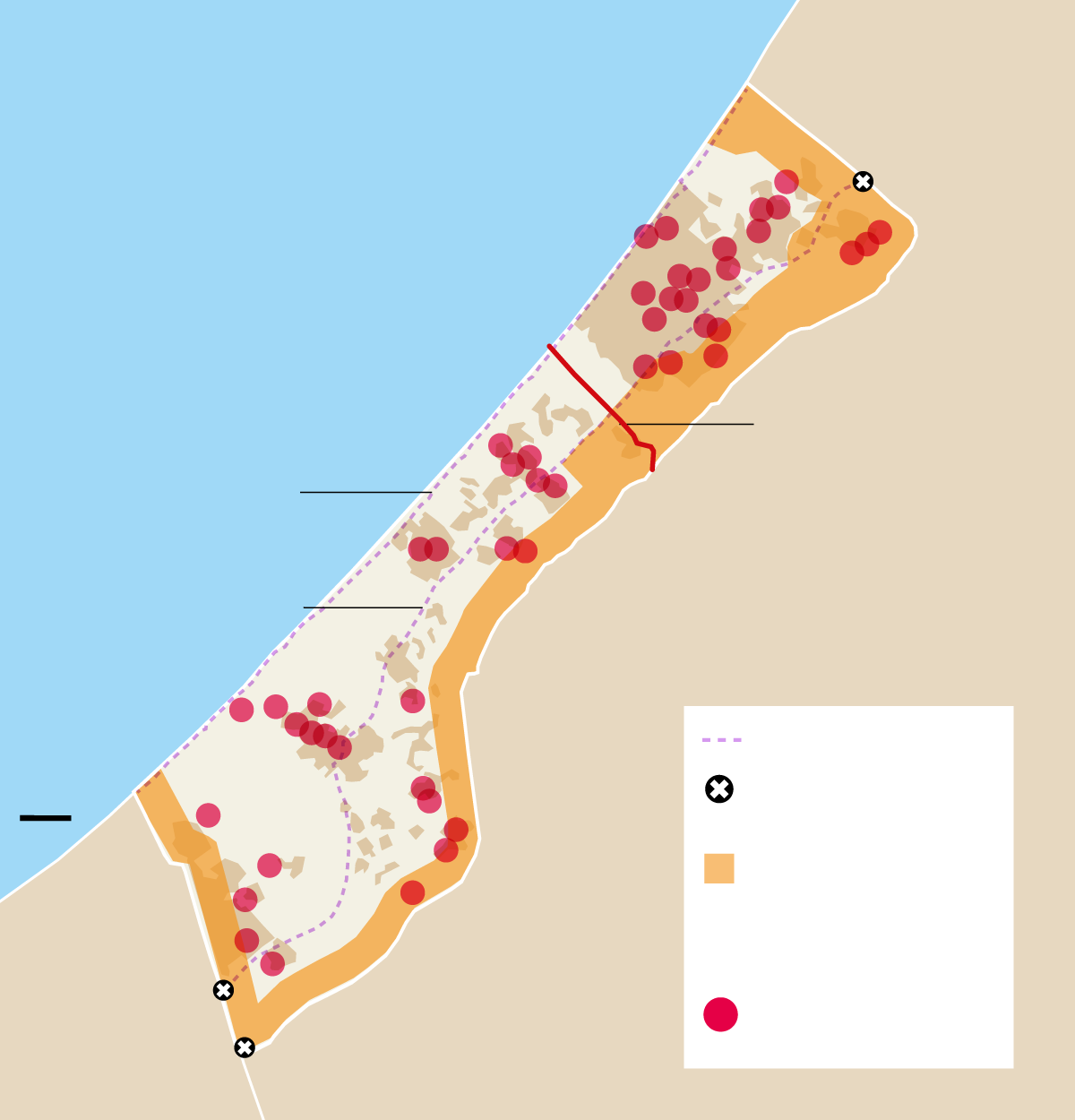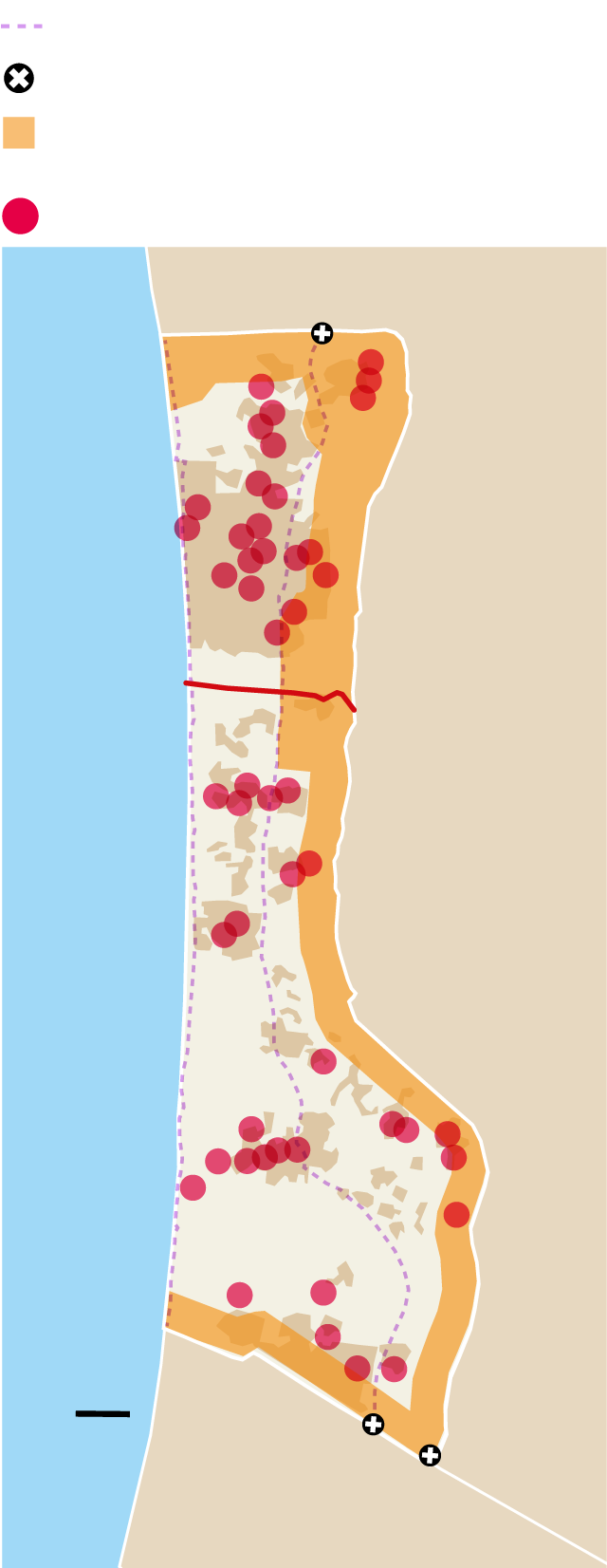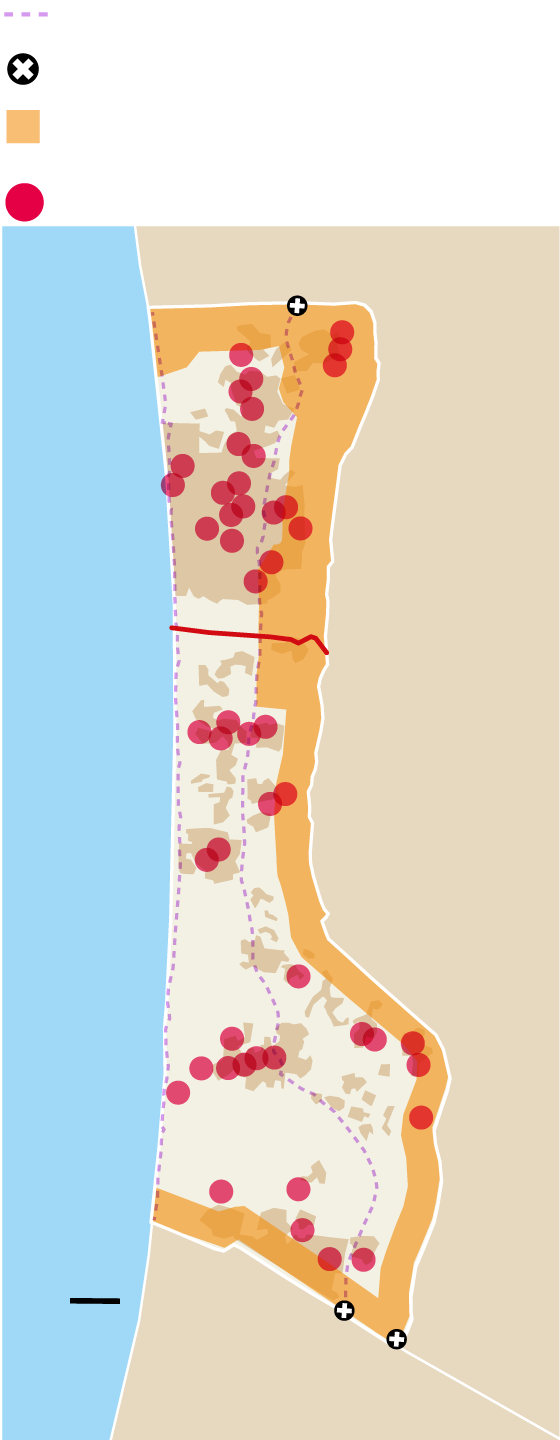Netanyahu undermines the truce in pursuit of political survival
Ben-Gvir will return to the Israeli government after the resumption of indiscriminate attacks in the Gaza Strip, which have caused more than 400 deaths.

BarcelonaIsrael broke the fragile truce and launched a massive bombing raid on the Gaza Strip on Tuesday, from north to south, after a two-month ceasefire. As of midday, 404 people have been killed and more than 1,000 wounded. According to local health authorities, run by Hamas, more than 40% of the victims were children. Israeli Prime Minister Binyamin Netanyahu has made it clear that he intends to continue the bombing: "This is only the beginning." In a televised address Tuesday night, he promised "increased action" and "greater intensity" in his war against Hamas. "Negotiations will continue only under fire," he said.
The goal is to force the Islamists to accept their terms. Netanyahu wants to extend the first phase of the truce, which expired on March 1 and provides for the exchange of Israeli hostages for Palestinian prisoners, instead of launching the second phase, which should lay the groundwork for a lasting peace. For three weeks now, Israel blocks the entry of humanitarian aid to Gaza and has also cut off the electricity supply, something that has once again pushed the humanitarian situation to the limit and caused food prices to skyrocket.
"They're bombing non-stop: I left my house to get better coverage and send you photos and audio messages, but then a car next to me exploded and I had to return," Fayes Elemare, a worker, explains to ARA in a WhatsApp message from Jabalia. "If the war starts again, we can only resist, here in the north, and get as far away from danger as we can, as we did before the truce," he says. But at the same time, he warns that it's raining like never before: "There are no buildings to shelter in, and they've gone weeks without food, medicine, or solar panels, because Israel maintains its policy of suffocating our people and taking our land from us: it's genocide and it has the full support of the United States."
"Hospitals are full of corpses and wounded: there's no room left," Amjad Shawa, director of the network that brings together 30 Palestinian NGOs in the Strip, explains to ARA from Gaza City. "Medical teams are overwhelmed, with very few resources and no supplies, after seventeen days of blocking the entry of basic materials," he adds. "Hundreds of families have fled again with nowhere safe to go, because the army has ordered new evacuations." He urges those with influence over Israel to "act now to prevent genocide." It is unclear whether these evacuation orders, like those issued by the Israeli military at the start of the offensive following the Palestinian attacks of October 7, 2023, are a prelude to a ground invasion.
In a statement, Hamas accused Netanyahu and his far-right allies of "making decisions to end the ceasefire agreement and expose the prisoners [the Israeli hostages] to an unknown fate." The organization confirmed the deaths of four senior civilian officials in the Strip, including Issamm al-Dalis, head of public works, as well as senior internal security officials, in what appears to be an attempt to erode the government's management capacity. Islamic Jihad also confirmed the death of the spokesman for its armed wing, Abu Hamza.
Samir Zaqout, director of the Gaza-based human rights organization Al Mezan, shares with this newspaper the astonishment of the people of Gaza: "Israeli officials have always talked about returning to war, but we here did not believe it, especially since in 15 months they have not succeeded in obtaining any of their own. They will be able to release the hostages by force." She says they woke up at 2:30 a.m. to massive bombing. "Most people had returned to their half-destroyed homes and had started looking for water and food... And now they're being ordered to leave again," she laments.
Negotiations on hold
Negotiations on the second phase of the ceasefire agreement, which was supposed to lead to the complete withdrawal of the Israeli army from Gaza, a permanent truce, and the release of the 60 Israeli hostages still held in Gaza (many of whom are deceased), were at an impasse. However, the Israeli and Palestinian delegations continued to work with the mediators, Egypt and Qatar. So far, Hamas had released 35 hostages in exchange for nearly 2,000 Palestinian prisoners. Israel did not explicitly declare that it would break the ceasefire, but made it clear that attacks would continue.
Netanyahu has also threatened the Houthis in Yemen, whom he has assured would be defeated with the help of the United States. The White House press secretary said that Israel has consulted with Donald Trump about resuming bombing in the Strip.
Israeli authorities have justified the resumption of bombing in Gaza as an attack on the new Hamas leadership and have asserted that it will free more hostages. Relatives of the hostages reject this argument and have called for a protest in Jerusalem: "The government has chosen to abandon the hostages," they said in a statement.
What is Netanyahu seeking?
In these two months of fragile pause—the Israeli army has killed 150 people in Gaza since the ceasefire began on January 19—two things have changed: the Israeli army has rebuilt itself, and Netanyahu needs the support of the far-right parties to ensure his survival.
Militarily, Israel has replenished its arsenals with the unconditional support of Donald Trump, repaired its planes, and rested its troops when they were showing such obvious signs of exhaustion that the ultra-Orthodox had to be recruited against their will. It has also identified new leaders of the Hamas organization, who have taken over following the assassination of Yahya Sinwar's old guard.
On the political front, Netanyahu faces several important votes in Parliament in the coming days, including the ratification of the budget. The Israeli Prime Minister now needs to reestablish his governing coalition following the return of the ultra-right Itamar Ben Gvir to the Interior Ministry, a position he resigned from in protest at the ceasefire. This ensures the approval of the budget and the stabilization of the government.
Furthermore, the crisis between the political and security apparatuses is worsening: on Sunday, Netanyahu announced that he had lost confidence in the head of the Shin Bet (internal security services), Ronen Bar, after the decision to resume bombing had already been made, according to the Israeli press. Behind the dispute is the official investigation into Netanyahu's policy of allowing Qatar to finance the administration of Gaza, which has led some sectors of the military and security apparatus to question the head of government. Following Sunday's announcement, protests had already been called in Israel against the dismissal.
Furthermore, Netanyahu is immersed in a trial accused of corruption that could lead to prison. The resumption of the war in Gaza has led the court to authorize him to postpone the statement on Tuesday.
For all these reasons, the journalist from Haaretz Amos Harel notes: "Netanyahu's true objective is becoming increasingly clear: a gradual shift toward an authoritarian regime that will try to survive with perpetual war on multiple fronts. And for this reason, the families of the hostages have come out in force to denounce the bombings, at least until their relatives are released from Ga."




